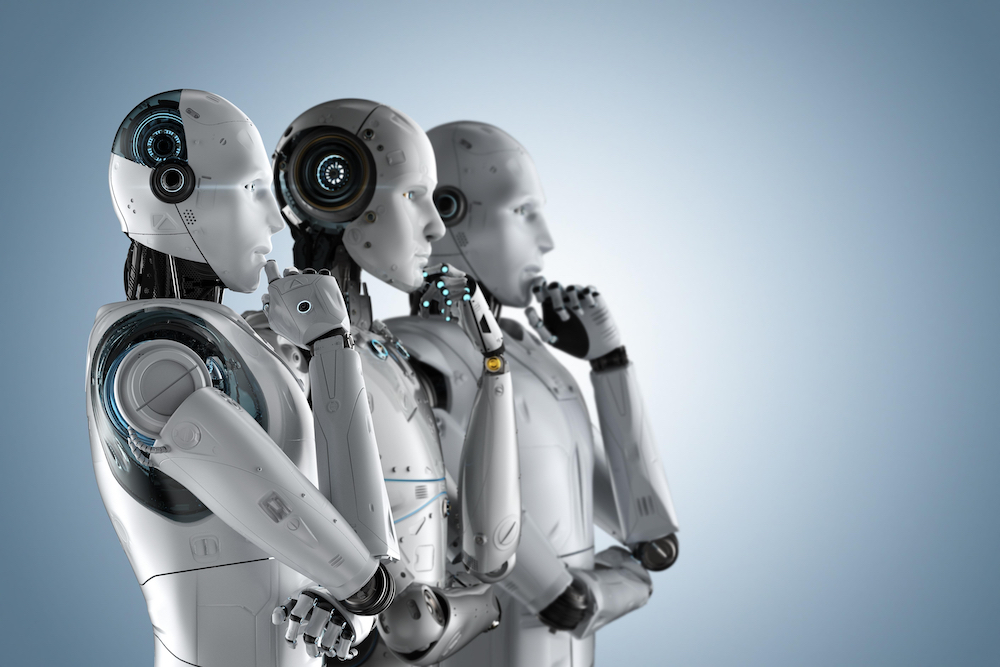AI To Fundamentally Change Recruitment Process

Research from Totaljobs suggests AI will fundamentally change the workplace as well as the recruitment process
The impact of artificial intelligence (AI) on both the the recruitment process in the United Kingdom will be significant.
This is according to new research from recruitment specialist Totaljobs, which found that are already widespread expectations that employers need to invest more in AI and use it to increase productivity and performance in the workplace (46 percent).
The impact of AI on recruitment has been a known issue for years now. In 2019 for example IBM research found that AI-enabled HR organisations was able to deliver new insights and services at scale without ballooning headcount or cost.

AI in recruitment
But four years later the Totaljobs research found that while AI will fundamentally change the workplace and recruitment, UK workers are demanding transparency and training.
The research showed that the vast majority of Brits (88 percent) are happy for AI to be used in the recruitment process, but draw the line when it comes to human decision making.
The research asked 2,002 UK workers about their thoughts on how AI will impact their working lives, found that nearly three-quarters (72 percent) believe that full disclosure of how the technology is used in the hiring process should be mandatory.
When it comes to the initial hiring process, the Totaljobs research indicated that jobseekers are tentatively in favour of the use of conversational AI tools, such as ChatGPT, to create job adverts (38 percent), tweak job adverts to remove biased language (36 percent), screen CVs and job applications for a human recruiter to then shortlist candidates (36 percent) and create interview questions (34 percent).
Furthermore 4 in 10 (42 percent) of respondents believe that proper and responsible use of AI will ultimately make the recruitment process fairer for applicants.
The research also reveals where people draw the line at having AI involved in their job-seeking journey and how face-to-face interactions are non-negotiable. Most candidates don’t think it’s acceptable for AI to conduct job interviews (86 percent) or help with the decision-making process after an interview (84 percent).
And it seems that only 1 in 10 (14 percent) would accept an interview conducted by an AI, with three quarters (66 percent) of participants worried about AI’s inability to fairly assess a candidates’ wider soft skills.
Job automation
Yet there is a clear recognition from UK workers that AI has the potential to revolutionise their everyday tasks within the next 5 years (44 percent).
More than half (54 percent) agreed that the use of AI will help cut down on manual tasks, while 56 percent said it will empower them to learn new skills, and 46 percent said it will enhance their productivity.
However, the research shows there is a disconnect between the enthusiasm for the opportunities that AI offers and everyday adoption in the workplace.
Half of UK workers admit they have never used AI and only 21 percent said they feel very comfortable using it. In addition, more than a third (39 percent) do not have a clear understanding of how AI is applied in their industry.
Redundant humans?
But the Totaljobs’ research shows also showed that whilst workers are enthusiastic about the opportunities that the AI revolution has for personal career development, they are concerned about the long-term implications, such as a lack of human oversight, or their job becoming obsolete.
For example BT last month announced it will cut 42 percent of its workforce by 2030, which translates to 55,000 job losses.
As such, companies looking to implement a successful AI integration need to act transparently and with care, said Totaljobs.
The UK carrier said that a fifth of the roles will be replaced by AI.
Upskilling employees and educating the workforce on AI’s benefits will be key to ease the transition and deliver the vital human input necessary to reassure workers and drive a successful, lasting revolution of the workforce, said Totaljobs.